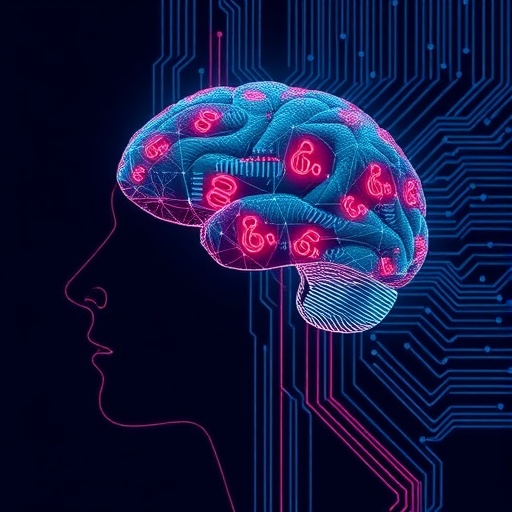In the landscape of cognitive science, the complexity of human memory has long been a subject of fascination and inquiry. A recent perspective in the field, spearheaded by researchers Nagy, Orbán, and Wu, delves into the intricate relationship between episodic and semantic memory through the lens of adaptive compression. This framework sheds light on how our brains encode sensory experiences, not as direct replicas, but through a sophisticated process involving interpretation, transformation, and selectivity. The findings align with rate distortion theory, a concept that seeks to understand how information is efficiently stored while minimizing the loss of important content.
At its core, the concept of compression applied to memory posits that the brain actively discards irrelevant details to optimize the storage of experiences. Traditional models in cognitive psychology have often assumed that our understanding of environmental regularities—the patterns and norms we rely on to navigate the world—is both stable and well-known. However, the authors challenge this notion, emphasizing that our semantic memories are not fixed; instead, they evolve with new experiences, especially those that are unexpected or surprising.
Surprise plays a critical role in learning, acting as a catalyst for the refinement of our cognitive frameworks. The authors advocate for a reconsideration of how we interpret surprising experiences—rather than viewing them as anomalies to be ignored, they propose that these instances are crucial for enhancing our understanding of the world. By integrating surprising events into our episodic memory, we allow these experiences to be subsequently re-evaluated and synthesized into the broader narrative of our lives.
The researchers present a normative framework wherein memory is viewed as a solution to an ongoing structure learning problem. This approach posits that there is a dynamic interplay between semantic and episodic memory, each contributing uniquely to our overall cognitive architecture. Semantic memory is tasked with identifying and learning environmental regularities efficiently, while episodic memory serves a complementary function, preserving raw, surprising experiences for future interpretation.
The implications of this perspective are profound, suggesting that memory distortions—often dismissed as errors—are actually adaptive responses that reflect our brains’ ongoing attempts to learn and adapt. Lessons extracted from surprising events help us construct a more coherent understanding of reality. This indicates that our ability to compress information—distilling it down to the most salient features—does not merely involve discarding the trivial but requires us to engage deeply with our experiences.
Understanding that memory operations are fundamentally about adaptation offers new insights into the mechanics of learning. When we experience something unexpected, it triggers a reevaluation process, where our cognitive systems analyze the implications of this surprise. This reassessment can lead to alterations in our semantic memory, enriching it with new regularities derived from prior experiences.
Moreover, this framework highlights the importance of episodic memory in providing the raw data necessary for the continuous evolution of cognitive frameworks. Instead of merely using existing knowledge to understand new inputs, the brain must actively track and encode experiences that challenge the status quo. The interplay between the two forms of memory becomes a dance of adaptation—where the unfamiliar becomes familiar, and new insights are garnered from moments of dissonance.
In exploring the broader landscape of cognitive neuroscience, researchers are beginning to unravel the intricate neural mechanisms underlying memory compression and surprise. Studies employing neuroimaging techniques have revealed the brain regions implicated in distinguishing between expected and unexpected stimuli, showcasing how surprise can activate areas associated with learning and memory consolidation. These neural correlates not only affirm the theoretical framework proposed by Nagy, Orbán, and Wu but also pave the way for further empirical investigations into the nature of human cognition.
Continuing research in this area stands to enhance our understanding of memory-related disorders, such as PTSD and amnesia, where the encoding and retrieval processes of memory may be disrupted. By leveraging the insights offered by this adaptive compression model, clinicians could potentially develop new therapeutic strategies that harness the power of surprise to facilitate learning and memory reconsolidation in affected individuals.
The implications extend beyond the clinical realm; understanding the adaptive nature of memory could revolutionize educational techniques. By designing learning experiences that incorporate elements of surprise and challenge traditional paradigms, educators can foster deeper understanding and retention in students. The idea is that by embracing the unexpected, we can cultivate a more robust learning environment that reflects the complexities of our cognitive processes.
In summary, the exploration of interdisciplinary theories surrounding memory compression and surprise offers a compelling narrative that elevates our understanding of human cognition. By bridging gaps between episodic and semantic memory through adaptive frameworks, researchers are unlocking new pathways to understand how we learn, remember, and ultimately make sense of our experiences in a rapidly changing world. The journey of memory is not just about what we encode but also about how we continuously reshape our understanding, driving forward the fascinating inquiry into the very nature of human thought.
By integrating these concepts, we open up avenues not only for theoretical exploration but also practical application, challenging us to rethink how we engage with the world around us. As research in this area progresses, it promises to enrich our understanding of the dynamic processes underlying our memories and the ways in which we adapt to life’s uncertainties.
Subject of Research: Adaptive Compression in Memory
Article Title: Adaptive compression as a unifying framework for episodic and semantic memory
Article References: Nagy, D.G., Orbán, G. & Wu, C.M. Adaptive compression as a unifying framework for episodic and semantic memory. Nat Rev Psychol 4, 484–498 (2025). https://doi.org/10.1038/s44159-025-00458-6
Image Credits: AI Generated
DOI:
Keywords: Memory, Semantic Memory, Episodic Memory, Adaptive Compression, Learning, Surprise, Cognitive Science




